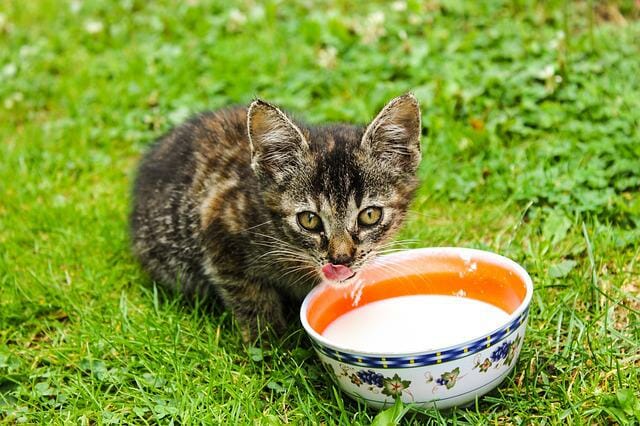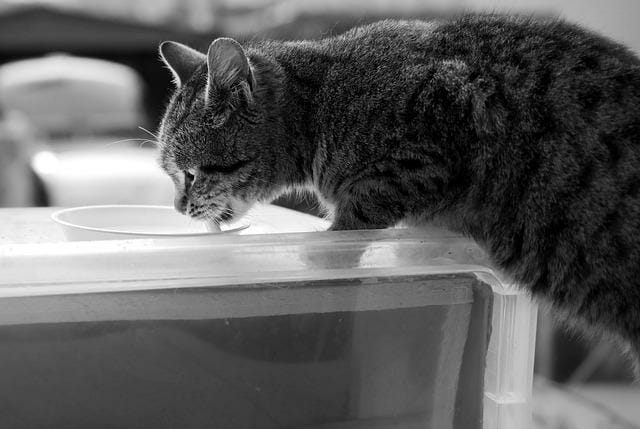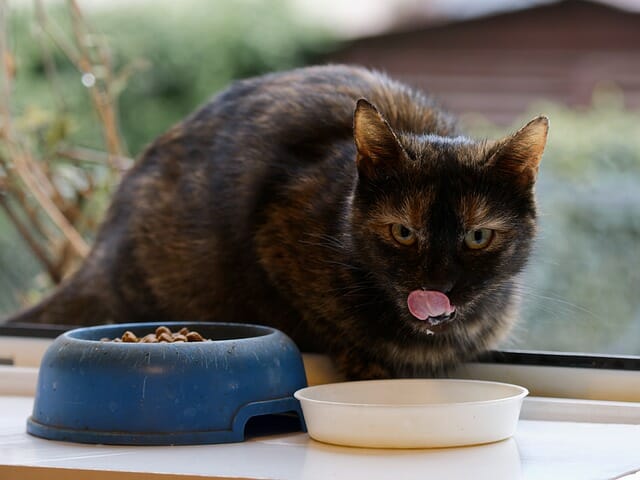Do Cat Drink Milk: Nutritional Value and Risks of Milk to Cats
Yes, cats are known for their love of milk, but it’s important to note that not all cats can tolerate milk, and it’s not an essential part of their diet. Many adult cats are lactose intolerant and can experience digestive upset if they consume milk or dairy products. If your cat enjoys milk and tolerates it well, it can be given as an occasional treat in small quantities. However, it’s important to ensure that any milk given to your cat is lactose-free.


Table of Contents
Nutritional Value of Milk for Cats
While milk is often associated with cats, it is not a necessary or recommended part of their diet. Most cats are lactose intolerant, meaning they lack the enzyme necessary to digest lactose, the sugar in milk. Feeding milk to a lactose-intolerant cat can cause digestive upset, including diarrhea and vomiting.
Regarding nutritional value, milk is not essential to a cat’s diet. Instead, a balanced and complete diet of high-quality commercial cat food should provide your cat’s nutrients to stay healthy, including protein, fats, carbohydrates, vitamins, and minerals.
If you want a treat for your cat, it’s best to stick to foods specifically made for cats, as these will be formulated to meet their nutritional needs. Additionally, freshwater should always be available to your cat to ensure they stay hydrated.
Potential Risks of Feeding Milk to Cats
Upset Digestive System
Feeding milk to cats can pose several potential risks, especially if they are lactose intolerant, which is the case for most cats. The main risk of feeding milk to a lactose-intolerant cat is digestive upset, including diarrhea, vomiting, and abdominal pain. In some cases, the cat may also experience flatulence or bloating.
Feeding milk to cats can also lead to an increased risk of obesity, as milk is high in calories and fat. Obesity can lead to various health problems, including joint issues, diabetes, and heart disease.
Furthermore, some cats may be allergic to milk protein, which can cause allergic reactions such as itching, hives, and even difficulty breathing.
It is also important to note that milk should not be used as a replacement for water, as it does not provide the same hydration level as water. However, fresh water should always be available to your cat to ensure they stay properly hydrated.
Dehydration
Feeding milk to a lactose-intolerant cat can lead to dehydration. When a lactose-intolerant cat consumes milk, the undigested lactose can lead to diarrhea, which can cause dehydration if the cat cannot drink enough water to replace the lost fluids.


If your cat is experiencing dehydration, you may notice symptoms such as a dry mouth and nose, sunken eyes, lethargy, and loss of appetite. If you suspect your cat is dehydrated, seeking veterinary attention as soon as possible is important.
To prevent dehydration, it’s important always to provide fresh water for your cat to drink, especially if they have experienced digestive upset after consuming milk. If your cat is not drinking enough water, you can try offering them wet food or adding water to their dry food to increase their water intake.
Allergic Reactions
Feeding milk to a cat allergic to milk protein can lead to allergic reactions, confirming to VCA Animal Hospital. Milk allergies occur when a cat’s immune system reacts to the proteins found in milk as if they were harmful substances. This can cause itching, redness, hives, and swelling of the face, lips, or tongue.
In severe cases, a milk allergy can cause anaphylaxis, a life-threatening reaction that can cause difficulty breathing, rapid heart rate, and shock. If you suspect that your cat is experiencing an allergic reaction to milk, it’s important to seek veterinary attention immediately.
To prevent allergic reactions, it’s important to avoid feeding your cat any foods that contain milk or milk products if they have a known allergy. In addition, your veterinarian may also be able to perform allergy testing to identify any other allergens that may be affecting your cat.
Obesity
Milk contains calories, and feeding too much of it can cause your cat to consume more calories than they need. Over time, consuming excess calories can lead to weight gain and obesity.
Obesity can increase the risk of several cat health problems, including diabetes, arthritis, and heart disease. To help prevent obesity, it’s important to feed your cat a balanced and appropriate diet and to avoid feeding them too many treats or table scraps.
Nutritional Deficiencies
While milk is a good source of calcium and protein, it does not provide all the nutrients cats need to thrive. In particular, milk is low in essential nutrients, such as vitamin E, vitamin D, and taurine, that cats require for optimal health.
Feeding your cat an unbalanced or inadequate diet can lead to various health problems, including poor growth, a weakened immune system, and organ damage. To ensure that your cat receives all the nutrients they need, it’s important to feed them a complete and balanced commercial cat food that meets the Association of American Feed Control Officials (AAFCO) nutrient requirements for their life stage.
Urinary Tract Problems


Feeding milk to cats in large amounts can contribute to urinary tract problems. This is because milk is a relatively high source of calcium and phosphorus, which can increase the risk of urinary stones forming in some cats.
Urinary stones can cause various symptoms, including painful urination, frequent urination, blood in the urine, and straining to urinate. In some cases, urinary stones can cause blockages in the urinary tract, a medical emergency requiring immediate veterinary attention.
To help prevent urinary tract problems, feeding your cat a balanced and appropriate diet is important to meet its nutritional needs. For example, if your cat is prone to urinary tract problems, your veterinarian may recommend a specialized diet to help prevent the formation of urinary stones.
